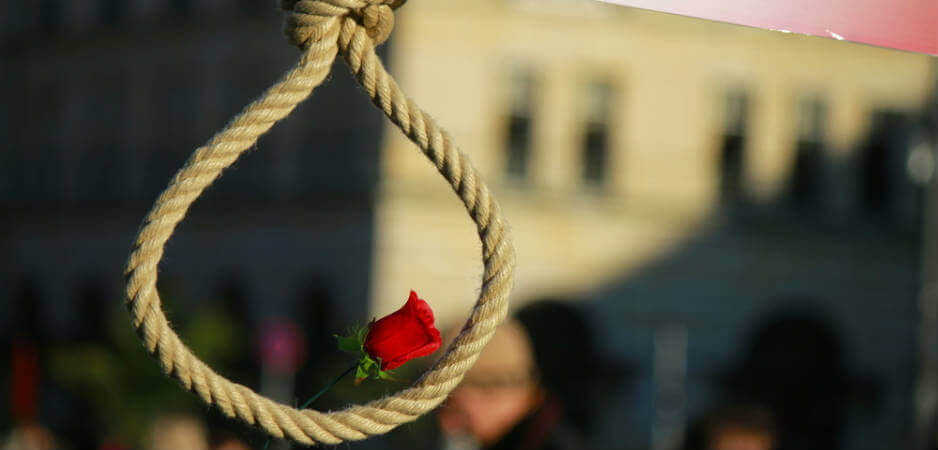When it comes to human rights violations in Iran, Europe’s stance is often influenced by its economic interests.
Whenever Europe is mentioned outside the continent itself, one key feature associated with it by non-Europeans is human rights. Whenever its leaders come together to discuss global matters, they ostensibly emphasize the importance of upholding human rights around the world.
While the recent protests in Iran were still ongoing, Ayatollah Hashemi Shahroudi, a prominent and infamous figure in Iran, was receiving advanced medical treatment in Germany. Ayatollah Shahroudi served as Iran’s chief justice from 1999 to 2009, his tenure coinciding with protests by Iranian university students in July 1999 that became known as the Kooye Daneshgah confrontation. The protests started peacefully, provoked by the closure of reformist Salam newspaper and the campaign against dissidents, known as the Chain Murders, that stretched from 1988 and came to light in the fall of 1998. As the Ansar-e-Hezbollah, a fundamentalist right-wing group, attacked students on campus at night, beating them in their dormitory rooms, the protests turned into a six-day violent uprising in which more than 1,400 students and other participants were arrested by July 18, 1999. Two years later, on Shahroudi’s watch, a low-ranking soldier was sentenced in a sham trial, while all of the assailants were acquitted by the court’s decision.
Immediately after his arrival in Germany, a protest campaign was launched by human rights activists and former political prisoners demanding Shahroudi’s arrest. The campaigners demanded that he be tried for crimes against humanity. However, after receiving medical treatment, he was quietly escorted to the airport and allowed to go back to Iran. It is not the first time that European ears turn deaf when it comes to human rights abuses in Iran.
Double Standard
In February 2017, Swedish Prime Minister Stefan Löfven led a trade delegation to Iran. Out of the 15 delegates, 11 were women. All of the Swedish female delegates wore hijabs and attended a meeting with a group of all-male Iranian officials. Ironically, the Swedish government calls itself the “first feminist government,” stating on its website that “A feminist government ensures that a gender equality perspective is brought into policy-making on a broad front, both nationally and internationally.” Just a week before the feminist Swedish government’s visit to Iran, a 14-year-old girl was beaten by the vice police on the street of Shiraz for wearing ripped jeans.
Iran’s record on women’s rights is infamous. Iranian women face a wide range of discrimination when it comes to marriage, divorce and child custody. Their share of inheritance is half of their male family members. While married, Iranian women can’t obtain a passport or travel outside the country without a written permission of their husbands. Moreover, girls can be legally married off at the age of 13, and sexual intercourse with 9-year-olds is not criminalized.
At the end of 2017, the Girls of Revolution Street campaign against compulsory hijabs lead to arrests of many Iranian women, some of whom now face charges punished by up to 10 years in prison. Still, the first feminist government has made no comment of support for their struggle.
This list goes on, bringing to light a hypocritical double standard. Sweden and Germany are not the only examples. The question is why and how European foreign policy toward some regimes such as Iran has come down to begging for the release of their citizens from torture and imprisonment while practically endorsing the oppression of local citizens.
Money and Profit
The Universal Declaration of Human Rights is supposed to hold international value, and Western policymakers are supposedly the ones most concerned about the mishandling of it globally. Yet it is a very selective matter among the Western states and politicians to focus on. Money and profit are usually behind it.
Whenever an uprising or unrest begins in a Middle Eastern or African country, Western politicians condemn the repression and express their support for the people on the streets. Although it might misleadingly seem genuine, they do not mean it unless the suppression is against their own interests.
Less than two weeks after Shahroudi left Germany, reports revealed that a final agreement was signed for Mercedes Benz vehicles to be produced in Iran from March 2018. Had the German state taken action on one of most prominent Iranian ayatollahs in order to fulfill its pledge to human rights and justice, then the consequences would have impacted this economic opportunity. In 2016 alone, Germany had exported more than €2.5 billion ($3 billion) worth of goods to Iran according to the Market Access Database of the European Commission. The same database shows that Sweden had exported more than €230 million ($283 million) of goods to Iran during the same year.
One might argue that more economic openness ensures a better life for ordinary people in a developing country like Iran by enlarging the middle class and decreasing the gap between poor and rich. Is that so? If this argument is true, why did Iranian people rush into the streets two years after the Iran nuclear deal was signed? The protests occurred because of an even more excessive economic pressure, skyrocketing prices and high unemployment rate of 26.6% for Iranians under the age of 29, according to a report by the Governmental Statistical Center of Iran. However, Iran’s interior minister mentioned the 60% unemployment rate in some cities back in October 2017.
Selective Approach
In Iran, any major agreement with a foreign partner can be implemented only by either an institution under direct the control of Islamic Revolutionary Guard Corps and the Velayat-e-Faqih (the Guardianship of the Islamic Jurist), or an individual linked to these institutions. The selective approach of the West to the human rights violations committed by Tehran has a few main and periphery beneficiaries.
The main winners in this game are the Western and Iranian corporations, as well as the terrorist organizations running Iran’s proxy wars. Following the 2015 nuclear deal, Peugeot, Boeing and Airbus signed deals worth of €400 million ($493 million), $20 billion and £25 billion ($34.5 billion), respectively. Iran also doubled its oil exports and simultaneously increased its financial aid for Hezbollah; the organization has been fighting in the Syrian Civil War alongside Bashar al-Assad’s forces. Tehran also resumed financial support for Hamas last year. Financial support for the Sunni terrorist organization was frozen for almost five years due to Iran’s crippled economy.
Putatively, a better world for all is what the Western leaders are aiming for in principle. However, what happens in practice is a better world at home at the expense of others, abroad. As far as the ayatollahs abuse the rights of their own people, without any direct threat to Europe and beyond, the response will continue to be turning a blind eye to the situation and carrying on with business as usual.
On the one hand, this new colonial approach is a dangerous path where dictators gain power through the trading of resources that belong to the nation. On the other hand, those Western leaders who ignore the systemic oppression in Iran in return for profit are as guilty as those sitting on the throne in Tehran. This hypocrisy cannot continue to be called diplomacy.
The views expressed in this article are the author’s own and do not necessarily reflect Fair Observer’s editorial policy.
Photo Credit: 360b / Shutterstock.com
Support Fair Observer
We rely on your support for our independence, diversity and quality.
For more than 10 years, Fair Observer has been free, fair and independent. No billionaire owns us, no advertisers control us. We are a reader-supported nonprofit. Unlike many other publications, we keep our content free for readers regardless of where they live or whether they can afford to pay. We have no paywalls and no ads.
In the post-truth era of fake news, echo chambers and filter bubbles, we publish a plurality of perspectives from around the world. Anyone can publish with us, but everyone goes through a rigorous editorial process. So, you get fact-checked, well-reasoned content instead of noise.
We publish 2,500+ voices from 90+ countries. We also conduct education and training programs
on subjects ranging from digital media and journalism to writing and critical thinking. This
doesn’t come cheap. Servers, editors, trainers and web developers cost
money.
Please consider supporting us on a regular basis as a recurring donor or a
sustaining member.
Will you support FO’s journalism?
We rely on your support for our independence, diversity and quality.







